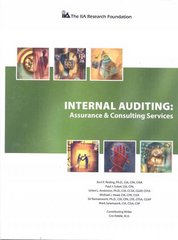Question
Listed below are selected events transactions relating to Sage Hill, Inc. for the current year ending December 31. Sage Hill manufactures laptop computers for sale
Listed below are selected events transactions relating to Sage Hill, Inc. for the current year ending December 31. Sage Hill manufactures laptop computers for sale in its own stores and for sale by other retailers.
| 1. | On December 1, Sage Hill accepted an order from a new customer, Buffalo Computers. Buffalo has a questionable credit history, so Sage Hill requires a $8,000 deposit from Buffalo in order to begin production on its order. | |
| 2. | During December, cash sales at Sage Hills retail locations totaled $3,424,000, which includes the 7% sales tax Sage Hill must remit to the state by the fifteenth day of the following month. | |
| 3. | During the year, Sage Hill was sued by a competitor for a patent violation. The competitor is claiming that Sage Hills liability is $2,050,000. Sage Hills attorneys have advised it that it is probable that the court will find for the companys competitor. The attorneys estimate that the liability under the suit could be as little as $82,000 or as much as $410,000. The attorneys do not believe any amount within this range is a better estimate of Sage Hills liability than any other amount within the range. | |
| 4. | Sage Hill provides one-year warranties on the laptops it sells. During the year, Sage Hills laptop sales totaled $82,000,000. Historically, Sage Hills warranty liability has been one percent of total sales. Sage Hill began the year with a warranty liability balance of $660,000. Warranty expenditures during the year were $635,000 for computers sold in prior years and $197,000 for computers sold during the year. These expenditures were recorded as credits to cash and debits to the warranty liability account. Any remaining warranty liability is expected to relate to computers sold during the current year. |
Prepare all the journal entries necessary to record the transactions noted above as they occurred and any adjusting journal entries relative to the transactions that would be required to present fair financial statements at December 31. For simplicity, assume that adjusting entries are recorded only once a year on December 31.
| No. | Date | Account Titles and Explanation | Debit | Credit |
|---|---|---|---|---|
| 1. | choose a transaction date Dec. 1Dec. 1-31Dec. 31 | enter an account title | enter a debit amount | enter a credit amount |
| enter an account title | enter a debit amount | enter a credit amount | ||
| 2. | choose a transaction date Dec. 1Dec. 1-31Dec. 31 | enter an account title | enter a debit amount | enter a credit amount |
| enter an account title | enter a debit amount | enter a credit amount | ||
| enter an account title | enter a debit amount | enter a credit amount | ||
| 3. | choose a transaction date Dec. 1Dec. 1-31Dec. 31 | enter an account title | enter a debit amount | enter a credit amount |
| enter an account title | enter a debit amount | enter a credit amount | ||
| 4. | choose a transaction date Dec. 1Dec. 1-31Dec. 31 | enter an account title | enter a debit amount | enter a credit amount |
| enter an account title | enter a debit amount | enter a credit amount |
Step by Step Solution
There are 3 Steps involved in it
Step: 1

Get Instant Access to Expert-Tailored Solutions
See step-by-step solutions with expert insights and AI powered tools for academic success
Step: 2

Step: 3

Ace Your Homework with AI
Get the answers you need in no time with our AI-driven, step-by-step assistance
Get Started


